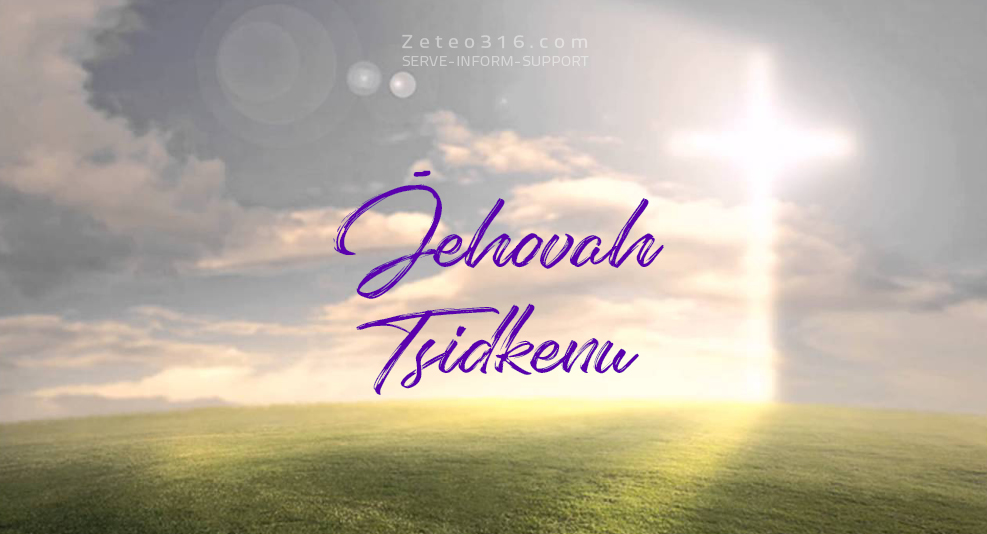
In His days Judah will be saved, And Israel will dwell safely; Now this is His name by which He will be called: THE LORD OUR RIGHTEOUSNESS. Jer 23:6
Jehovah Tsidkenu means The Lord Our Righteousness and is first used in Jer 23:6. It was a watchword of the reformers. In one sermon Pastor Alistair Begg mentioned that Jehovah Tsidkenu was used regularly by his parents when he was a boy. Later on, he came across Robert Murray M’Cheyne’s poem (see below).
In His days Judah will be saved, And Israel will dwell safely; Now this is His name by which He will be called: THE LORD OUR RIGHTEOUSNESS. Jer 23:6
He has delivered us from the power of darkness and conveyed us into the kingdom of the Son of His love, in whom we have redemption through His blood, the forgiveness of sins. He is the image of the invisible God, the firstborn over all creation. For by Him all things were created that are in heaven and that are on earth, visible and invisible, whether thrones or dominions or principalities or powers. All things were created through Him and for Him. And He is before all things, and in Him all things consist. Col 1:13-17
M’Cheyne’s poem reflects his journey from doubt to head knowledge, and finally to the joy of heart knowledge that he is covered by Christ’s righteousness.
I once was a stranger to grace and to God,
I knew not my danger, and felt not my load;
Though friends spoke in rapture of Christ on the tree,
Jehovah Tsidkenu was nothing to me.
I oft read with pleasure, to sooth or engage,
Isaiah’s wild measure and John’s simple page;
But e’en when they pictured the blood-sprinkled tree
Jehovah Tsidkenu seem’d nothing to me.
Like tears from the daughters of Zion that roll,
I wept when the waters went over His soul;
Yet thought not that my sins had nail’d to the tree
Jehovah Tsidkenu – ’twas nothing to me.
When free grace awoke me, by light from on high,
Then legal fears shook me, I trembled to die;
No refuge, no safety in self could I see, –
Jehovah Tsidkenu my Saviour must be.
My terrors all vanished before the sweet name;
My guilty fears banished, with boldness I came
To drink at the fountain, life-giving and free, –
Jehovah Tsidkenu is all things to me.
Jehovah Tsidkenu! my treasure and boast,
Jehovah Tsidkenu! I ne’er can be lost;
In thee I shall conquer by flood and by field,
My cable, my anchor, my breast-plate and shield!
Even treading the valley, the shadow of death,
This “watchword” shall rally my faltering breath;
For while from life’s fever my God sets me free,
Jehovah Tsidkenu, my death song shall be.
For those interested, M’Cheyne’s works and poems can be found in Andrew Bonar’s
Memoir & Remains of Robert Murray M’Cheyne.
